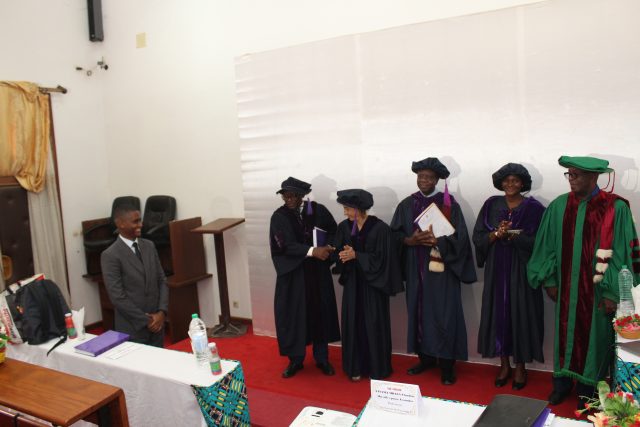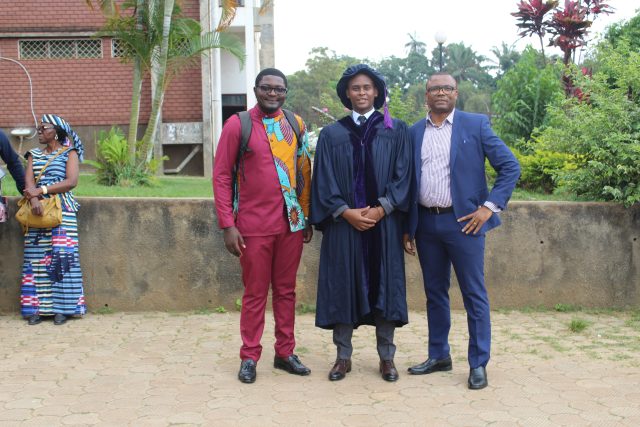
The candidate in front of the jury members
On Monday, November 28, 2022, Sougal Freitas PhD student at the Department of Animal Biology and Physiology, University of Yaoundé I, and a research student at CRID, presented his work entitled: ” Growth trial of Tsetse fly resistance as a vector control method against African trypanosomiasis (HAT and Nagana)” in front of a jury of experts in Molecular entomology, parasitology, Ecology, and bacteriology. After a critical examination of the scientific nature of the work, the jury unanimously awarded him a doctorate degree in Parasitology with distinction. This research work was conducted under the supervision of Prof Flobert Njiokou, University of Yaoundé I, and Dr Anne Geiger, research officer /HDR, French National Research Institute for Sustainable Development (IRD), Montpellier.
The Research
Sleeping sickness, also called Human African Trypanosomiasis (HAT) and Nagana or African Animal Trypanosomiasis (AAT), in humans and animals respectively, are vector-borne diseases caused by tsetse flies. Thanks to vector control, the number of new cases of these diseases is currently the lowest ever recorded according to a 2019 report by the World Health Organization. Nonetheless, it is important to eradicate them in order to avoid any re-emergence. Based on this, Sougal Freitas’ study therefore aimed at rendering the tsetse fly unable to transmit the disease.

The candidate with Prof Charles Wondji and Dr Trésor Melachio from CRID
This study carried out in the different villages of the Campo focus revealed the presence of 4 types of tsetse flies, of which Glossina palpalis palpalis is the most represented (96.1%). The search for the parasite that causes trypanosomiasis was carried out in these tsetse flies and it was found that Trypanosoma congelense type Savane and Trypanosoma brucei s.l. are the major parasites present in the tsetse flies and responsible for the transmission of the disease. In his work, he used two approaches: firstly, the detection of bacteria that allow the tsetse fly to stop transmitting the disease, and secondly, the investigation of the genetic modification of bacteria present in the tsetse fly’s intestine for the same purpose.
However, this study, requires further investigation to determine other proteins that may render the tsetse fly incapable of transmitting the disease even if it comes into contact with the parasite.
Dr Sougal Freitas trained at the University of Yaoundé I, Cameroon, and at the French National Research Institute for Sustainable Development (IRD) in Montpellier, France, has joined the team of experts and doctors at CRID to carry out research on the genetic evolution of mosquitoes. Congratulations ! Dr Sougal






